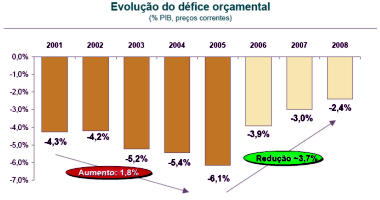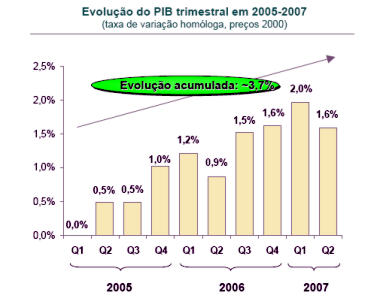Portugal features
Climate
The winter temperatures are particularly mild on the coasts but quite cooler in the interior. It is also the season of dense rainfalls which, however, rarely prevent the apparition of the sun during an entire day. The average daily sunshine is 6 hours during that season - a feature especially appreciated by residents originating from northern Europe.
Summer's temperatures, thanks to the influence of the ocean, rarely reaches unpleasant levels as the ones sometimes experienced around the Mediterranean sea.
Cost of living
Even if it has risen lately, cost of living remains low compared to most of other EU especially property, rent, food, transportation, restaurants and other entertainments.
Easily reached by air
The emergence of low costs airlines put more than 350 millions European citizens at less than 3 hours flight from Portugal.
Friendliness
Portuguese are known for their hospitality and love welcoming foreigners.
Economy
Since 2005 Portugal succeeded in controlling its public debt and its budget deficit keeping unemployment and inflation at EEC required levels.
Energy and tourism are the two sectors considered as strategic by the government to secure the country's economic growth.
Gastronomy
850 kilometres of coast on the Atlantic Ocean naturally lead to a sea product oriented-gastronomy. Nevertheless Portuguese love meat that they cook according varied and flavourful recipes.
National taste for sweets originates from the Moorish occupation which makes that one can find no less than two hundred different types of pastries.
On top of the worldwide reputed Port Wine, the country produces, from North to South, a wide variety of wines thanks to its large number of variety of grapes and soils.
Geography
Continental Portugal is bordered by a coastline of more than 850 km and 1,212 km land frontier with Spain .
It is split in two by its main river, the Tagus. To the north, the landscape is mountainous with plateaus. The south consists mostly of rolling plains with a climate somewhat warmer and drier than the north. The Serra da Estrella is the highest mountain of mainland Portugal, reaching almost 2,000 metres and permitting winter sports.
Population
Portugal is the 75th largest nation with 10.6 million people and a density of 114 persons per square kilometre. (Roughly the same population as Belgium but three times its surface.)
UN forecasts show that by 2015, 45,3% of the population will live in the Lisbon area while 23,9% will live around Porto. Considering the other main cities'' demography, it means that 80 % of the Portuguese people will live in urban areas by that time.
Security
Portugal enjoys one of the lowest crime rate in the world and physical aggressions are rare, even in large cities.
In 2008 Portugal had the lowest crime rate of the EEC: 37.7/1000 while the average was 69.1. (Source: Portuguese Government)
Tourism development
Being a strategic sector for the economy, several measures have been implemented in order to secure its growth.
The National Strategic Plan for Tourism (PENT - Plano Estratégico Nacional do Turismo) aim to develop tourism to become one of the main sectors of the economy by attracting more tourists and promoting the global image of Portugal.
The targets for 2015 are: 20 million tourists per year, the sector represents 15% of domestic GDP and employment, annual turnover of 15 billion Euros.
Among the others, the Potential National Interest program (PIN+) is designed to attract domestic and foreign investments for "quality tourism" in order to achieve companies modernisation, economic growth and employment.
Real Estate
A continuous increase of property prices and number of properties put on the market demonstrates the wealth of this sector which offers superb investment opportunities and keeps attracting foreign investors.
Property value consistently outperformed by far the inflation and extra return from the tourism rental market is easily obtained.

